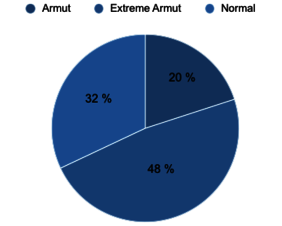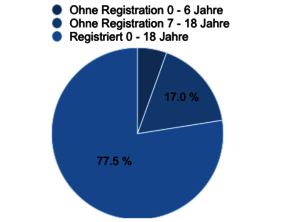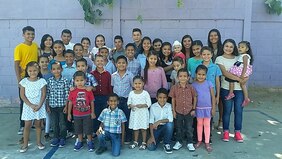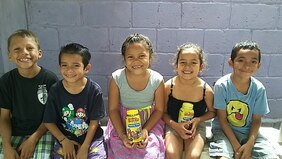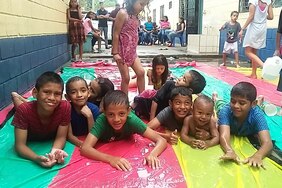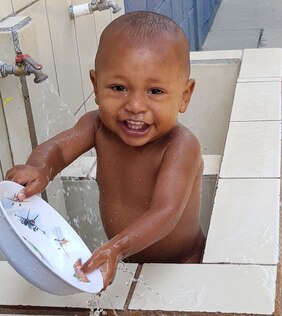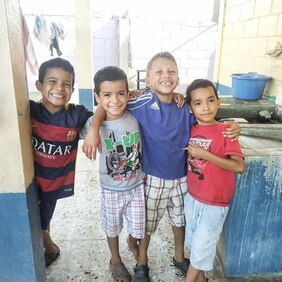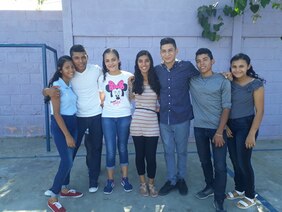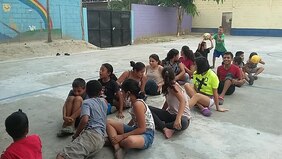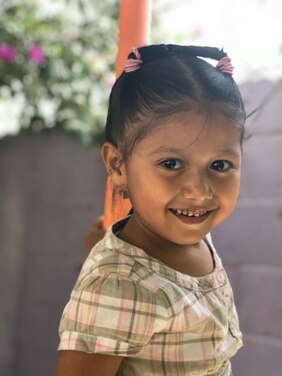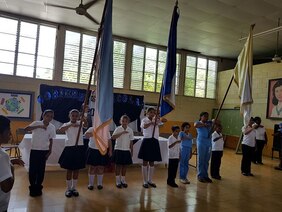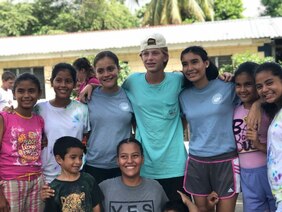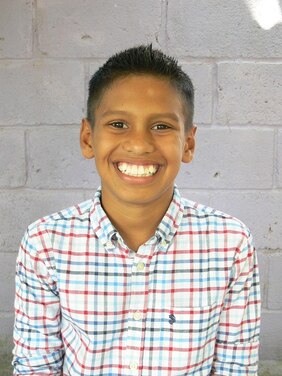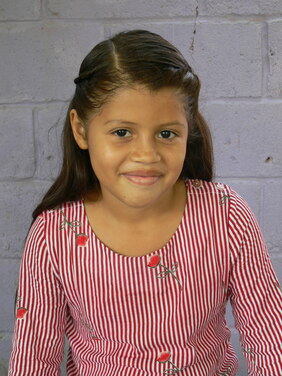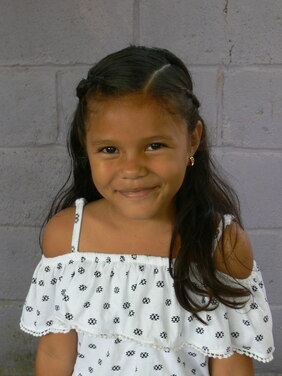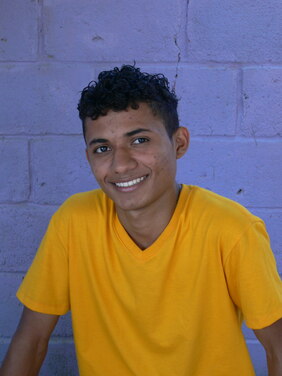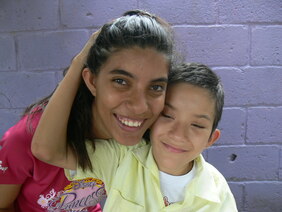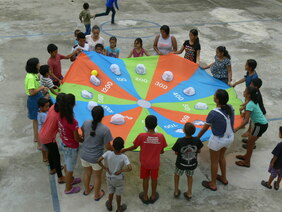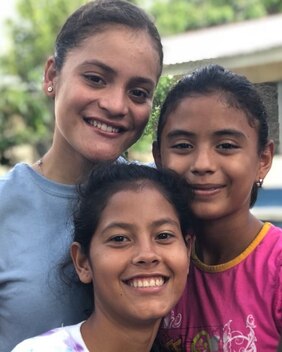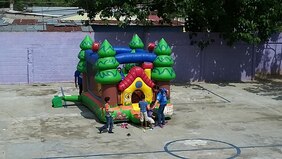Children’s Rights
Name and nationality (birth certificate)
They play football like world champions, do tricks like all the other kids do, climb mango trees, have a name, but they do not officially exist.
For us in Switzerland this is hard to imagine. In Honduras, however, it is absolutely common that a child is not registered at birth and thus does not officially exist.
In 2001, an estimated 22% of children were not registered. According to recent surveys, more than 64,871 out of 1,170,107 children under the age of 6 are not registered. This means that 5.5% of the Honduran children have no birth certificate.
What disadvantages bring those circumstances with it? Not registering a child is the tacit denial of their human rights; you have no name and no nationality. If you go to a public hospital, you will not be treated. You can not visit the school either. You simply do not exist. Due to that fact that these children do legally not exist, they fall through the crack and are the ones who most often suffer abuse, especially sexual exploitation and human trafficking. Shockingly, it's all too often the parents who do this with their kids.
Later, as an adult, you can never officially drive, never legally accept a job, never have an identity card or passport, never open a bank account, never vote, or buy a house, land, or car.
At the children's home we too have been fighting with the state authorities for 10 years. During this time, we managed to register two out of seven children officially. Four of our children have not received birth certificates until today. The process of recognizing a child is very complicated, obscure and tremendously lengthy. Either you can present a birth certificate from a hospital or you have to be examined by the medical examiner. First, a medical and then a dental examination, to determine the age of the child. However, the result is very inaccurate, for example between 5 and 7 years, or between 12 and 14 years. We have even felt obliged to write to international human rights organizations and hope to get the necessary support from them.
When the children come to us and have no birthday, I decided to grant them nonetheless the joy of a birthday celebration and pick for each one a day and a year. This enables them to have once a year also their special day, even though it is a fictional birthdate but by no means less meaningful.
Neglect
The lack of food, the lack of necessary accommodation, the absence of supervision and provision of clothing and healthy living space are considered neglect. As a result, 37% of Honduran children are affected by physical neglect.
70 % of all children in Honduras suffer from a form of neglect during childhood. The most common one is the physical neglect, physical abuse and psychological abuse follow shortly which then all too often lead to abandonment.
Physical neglect has serious consequences for the affected child: malnutrition, lack of self-esteem, learning difficulties, or difficulty in making decisions. Just to name a few of the most common impacts. Mostly, the trauma experienced is transformed into an obsession, a phobia or a fixation.
Once the child grows, it can not get rid of the lived trauma without appropriate treatment and would like to repeat it directly or indirectly. Such as a child who has been beaten becomes a basher in adulthood.
From a sociological point of view, child abuse is a growing phenomenon that destroys society because it exacerbates risk factors such as drug addiction, alcoholism, poverty and violence, which in turn leads to more abuse.
Poverty
68% of the 9 million inhabitants of Honduras are poor. Of these, 48% live in extreme poverty. Honduras ranks in the top of the working-poor countries, the majority of working people live in poverty.
57% of whom work independently, live in extreme poverty and 75% live in poverty.
Some reports show that the growth of poverty in Honduras is the result of a wrong approach regarding social policies, based on welfare programs rather than measures to promote social mobility.
Child labor
Of the approximately two million children in Honduras, about 14% need to work.
A total of 371,386 minors between the ages of 5 and 17 work, according to the country's statistical office. Only 4.9% of children attend school.
According to a study by the World Vision International Children's Fund, minors are employed in various sectors of the economy, 59.7% of whom work in agriculture, of whom 74.8% are boys and 19.3% are girls. Many children work in construction or as domestic helpers (3.1%). For their work, which often equates to that of adults, children in most cases do not even earn minimum wages.
78.9% of the boys and 75.1% of the girls work unpaid for their own family.
One of the causes of child labor is poverty, as most children have to support their parents because their income would be insufficient. And another relevant cause are the costs for education which many families can not afford (fees, uniforms, books food, etc.) and are left with no other option then sending their children to work to keep them occupied.
So far established problem-solving approaches from the government:
- In the past, a lot of money has gone into improving the education system, which is part of a general fight against poverty.
- The second national plan, to prevent and eradicate child labor, has launched a committee to coordinate the fight against child labor. Some legislative proposals have already been made and in some cases even been implemented
Unfortunately, most of these national plans remain on paper. The decisive step of the implementation has unfortunately not yet happened.
Sexual abuse
In the past two years, the number of sexual abuses has increased by 200%, with 95% of them being committed by family members (stepfather, father, uncle, brother or grandfather). Mostly the victims are between 2 and 14 years old. Last year, 3000 cases were denounced. Of course, that's just the public figure, because in fact there are x thousands more cases. The problem is that only a few cases are reported, most remain forever anonymous.
Many teenage moms conceive through a rape but they neither have the chance nor the courage to talk about it and often times it is either never discovered or only when the child is born.
All these facts and figures are the reality of children in Honduras. Seeing the "true world" where "our" children come from, it is even more remarkable to see them leaving behind their dark pasts and being simply happy about the chances in their lives.
(Information and statistics are from the local newspapers La Prensa and El Heraldo).
